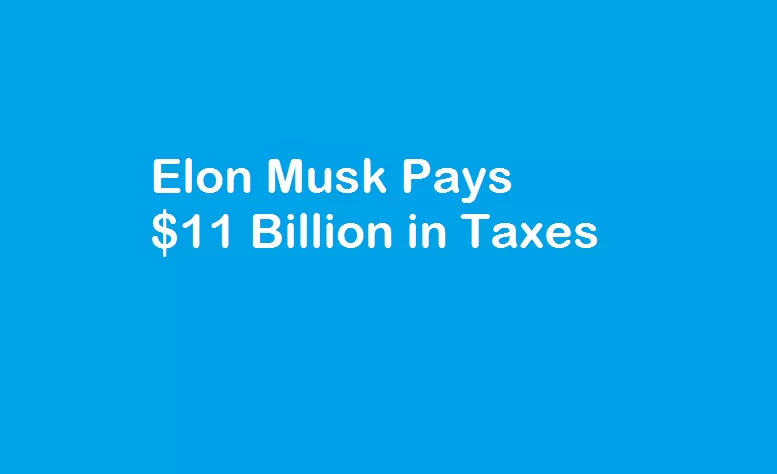Elon Musk’s tax bill has been making headlines recently as it was reported that he paid a staggering $11 billion in taxes. This amount is said to be the largest individual tax payment ever made, and it has sparked a debate about the fairness of the US tax system.
Many people have pointed out that while Musk may have paid many taxes, he still benefits from various tax breaks and loopholes. For example, he can deduct expenses related to his business ventures and investments, significantly reducing his taxable income.
Others argue that even if Musk does benefit from certain tax breaks, he still contributes more than most Americans do to the country’s economy. His companies employ thousands of people and are responsible for many technological advancements that benefit society.
Overall, Elon Musk’s massive tax bill highlights the complexities of the US tax system and raises important questions about how we can ensure that everyone pays their fair share.
Sources of income & tax rates
The sources of income vary from person to person, as do the tax rates. While salary and wages are the most common sources of income, other types include capital gains, dividends, rental income, and business profits. The tax rate for each income type varies depending on factors such as the amount earned, filing status, deductions claimed, and state or federal laws.
Elon Musk’s case is unique since he made a significant portion of his wealth through stock options that qualify him for capital gains taxes instead of regular income taxes. Capital gains tax rates are lower than ordinary income tax rates in many countries worldwide. However, some argue that this system disproportionately benefits high-income individuals like Musk while limiting government revenue potential.
In conclusion, understanding your income sources is essential to know what types of taxes you owe. Additionally, it’s crucial to be knowledgeable about tax policies in your country or state, as they can significantly impact your net worth over time.
Comparison to other billionaires
Regarding paying taxes, Elon Musk’s contribution of $11 billion is certainly noteworthy. However, if we compare him to other billionaires, he falls behind some of the biggest names in the industry. For instance, Amazon CEO Jeff Bezos paid $973 million in taxes in 2020 alone. Similarly, Warren Buffet has also been known for his philanthropic efforts and tax payments over the years.
It is worth noting that while these figures may seem impressive, they don’t necessarily give us a full picture of each individual’s financial situation. Many billionaires can access various tax loopholes and strategies, allowing them to legally minimize their tax liabilities. Additionally, wealth inequality remains a significant issue globally, and while some billionaires do pay their fair share of taxes, others continue to evade or avoid them entirely.
In conclusion, Elon Musk’s $11 billion tax contribution is commendable on its own merits, compared to other billionaire titans like Bezos and Buffet, who pay larger sums annually despite having similar fortune sizes as Musk raises questions about fair taxation policies. Ultimately though, paying high taxes should be seen as a civic duty from those who benefit most from society since governments need the money to provide basic public services like healthcare and education, among others.
rajkotupdates.news : elon musk pay 11 billion in taxes
How much they pay in taxes
It was reported Via Forbes that he paid $11 billion in taxes between 2014 and 2018. This news has sparked a debate about how much the ultra-rich should be paying in taxes.
Many argue that billionaires like Musk should pay more taxes to fund social programs and address income inequality. However, others believe they already pay a significant amount and that increasing their tax burden could discourage investment and innovation. Regardless of where someone falls on this issue, it is clear that discussions around tax policy will continue to be an important topic for years.
Ultimately, how much someone pays in taxes depends on their income level and various deductions they may qualify for. Tax laws vary from country to country, so what may be considered fair or unfair can differ depending on where someone lives. Despite these complexities, it is clear that debates around taxation will continue as society grapples with issues related to wealth distribution and economic justice.
Read Also: wellhealthorganic.com:blueberry-brain-boosting-benefits
